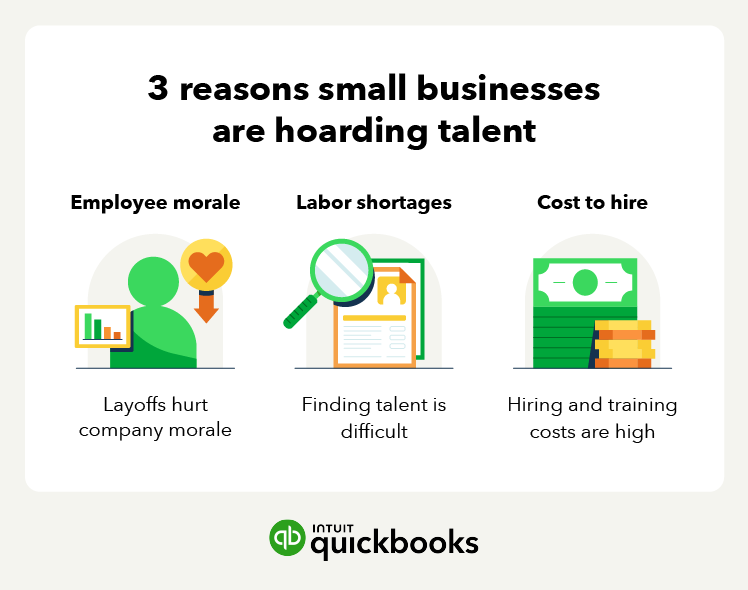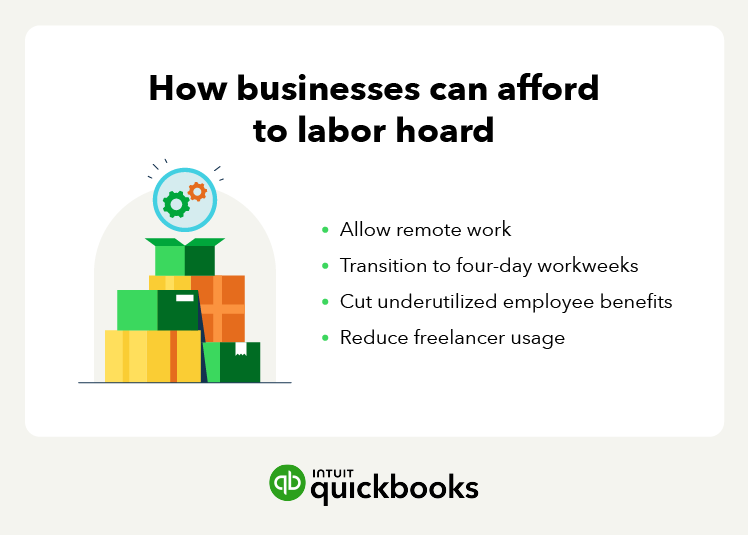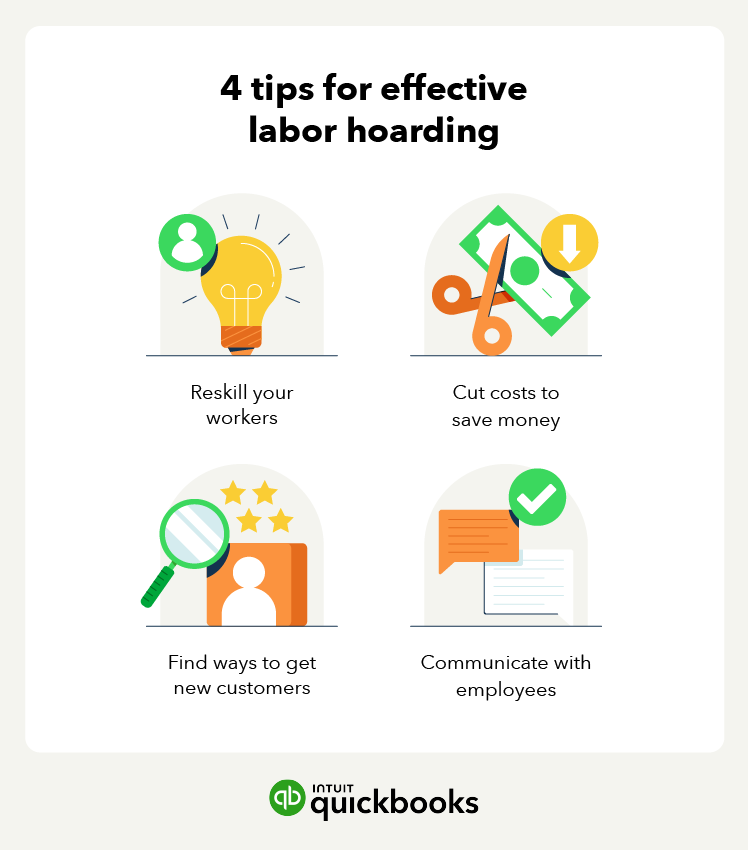Deciding whether to hoard talent will depend on the right staffing solution for your business. Start by figuring out your current and future staffing requirements. If you do decide to labor hoard, there are ways to ensure you get the most out of it.
Here are some ways to ensure labor hoarding is successful:
- Reskill employees: Use them in other areas of your business instead of letting them go or cutting their hours. Transition them to more profitable projects and invest in helping them acquire new skills.
- Cut costs in other ways: Avoid cutting costs in areas that will harm employee morale. Instead, cut wasteful spending on excessive travel, events, and unused perks.
- Tap into new customer segments: Find ways to get new customers or sell new products or services to your current customers. This may involve finding new niches, segments, or sales channels.
- Communicate clearly: From budget cuts to new initiatives, communicate with your employees to keep morale high. This can help foster trust and shows you’re investing in company culture.
Run your business with confidence
Labor hoarding is a strategy that can help businesses with employee retention, but it can also have some drawbacks. It may lead to an overcrowded workplace where employee utilization and morale are low, which reduces productivity.
With QuickBooks accounting software, managing your company finances is one less thing to worry about. That way, you can focus on more important things—like employee morale.
Labor hoarding FAQ
Here are the top questions small business owners have about labor hoarding:
What is talent hoarding?
Talent hoarding can be a synonym for labor hoarding, but it can also refer to a manager keeping an employee on their team when it’s harmful to the employee’s growth prospects. Talent hoarding can be avoided by crosstraining and upskilling employees. Talent hoarding can also be prevented by supporting and rewarding current managers.
What is hoarding in economics?
Economic hoarding is buying a large amount of a product to create scarcity. The buyer then benefits from higher prices in the future.














